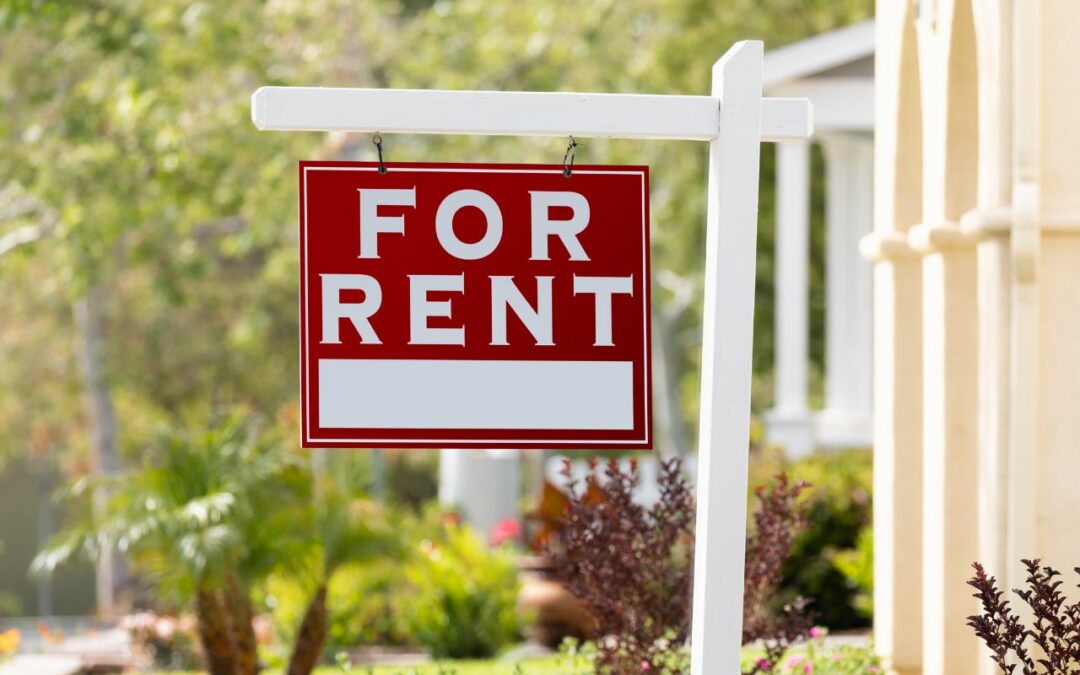Screening tenants for your rental property is imperative for protecting your investment, reducing liabilities, and ensuring consistent income. By thoroughly vetting tenants, you can select reliable occupants who are likely to fulfill lease obligations, minimizing turnover costs and preserving property value. Through legal compliance, mitigating financial risks, and safeguarding your property condition, you can create a harmonious living environment, enhance safety, and promote long-term stability. Remember, tenant screening is not just about finding occupants; it’s about safeguarding your property and fostering positive landlord-tenant relationships for mutual benefit.
Key Takeaways
- Safeguards investment and ensures reliable income stream.
- Reduces liability risks associated with renting.
- Identifies tenants likely to fulfill lease obligations.
- Minimizes turnover costs through careful selection.
- Enhances property value, safety, and community cohesion.
Importance of Tenant Screening
Screening potential tenants for your rental property is an important step in safeguarding your investment and ensuring a reliable rental income stream. By thoroughly screening applicants, you can greatly reduce liability risks associated with renting out your property. Proper screening helps in identifying tenants who are more likely to fulfill their lease obligations, pay rent on time, and maintain the property in good condition. This process also plays a vital role in minimizing turnover costs by selecting long-term tenants who are less likely to move out frequently.
When you carefully screen potential tenants, you reduce the chances of renting to individuals with a history of late payments, property damage, or lease violations. This proactive approach can help prevent costly legal issues and disputes down the line, ultimately protecting your investment. By conducting thorough background checks, verifying income and employment stability, and contacting previous landlords for references, you can make informed decisions that benefit both you as the landlord and the tenant.
Legal Compliance Matters
Ensuring legal compliance in tenant screening is paramount to safeguarding your rental property investment and mitigating potential risks. When screening potential tenants, conducting thorough background checks and reviewing credit reports are essential steps. Legal requirements mandate that you treat all applicants equally and fairly, without discrimination based on protected characteristics.
Documentation verification is an important aspect of legal compliance. You must verify the identity of applicants by requesting valid identification documents such as driver’s licenses or passports. Additionally, confirming their employment status and income through pay stubs, bank statements, or employment verification forms is essential.
To comply with regulations, it’s imperative to obtain written consent from applicants before conducting background checks or obtaining credit reports. This consent should be documented and retained for your records.
Furthermore, understanding and adhering to federal, state, and local laws governing tenant screening processes is crucial. These laws dictate the type of information you can consider, how you can use it, and the procedures for handling adverse action if an applicant is denied based on screening results. By staying compliant with legal requirements and ensuring proper documentation verification, you can protect your rental property investment and minimize potential legal risks.
Mitigating Financial Risks
To mitigate financial risks associated with renting out your property, it’s essential to thoroughly assess the financial stability of potential tenants. Conducting a detailed risk assessment of the tenant’s financial background is vital in safeguarding your investment. Start by requesting credit reports, employment verification, and income statements to evaluate their ability to meet rent payments. Look for red flags such as past evictions, outstanding debts, or inconsistent income sources that may indicate financial instability. By thoroughly examining these financial aspects, you can make informed decisions that will help protect your property and rental income.
In addition to risk assessment, consider implementing financial protection measures such as requiring a security deposit and rental insurance. A security deposit acts as a safety net in case of property damage or unpaid rent, providing a form of financial security for landlords. Rental insurance, on the other hand, can offer further protection by covering losses due to tenant negligence or unforeseen circumstances.
Protecting Property Condition
You must prioritize the prevention of property damage by conducting thorough inspections before and after a lease.
You should also make sure that tenants are accountable for maintaining the property in good condition throughout their tenancy.
It’s essential to establish clear guidelines and expectations regarding property care to safeguard your investment.
Preventing Property Damage
In order to safeguard the condition of your rental property and minimize potential damage, it’s important to establish clear guidelines and expectations for tenants regarding property maintenance and care. Tenant accountability plays a vital role in property preservation. By outlining specific responsibilities in the rental agreement, such as regular maintenance tasks and prompt reporting of any issues, tenants can be held accountable for upkeeping the property.
Damage prevention is key in ensuring the longevity of your rental property. Through thorough tenant screening processes that include background checks and references, you can identify reliable tenants who are likely to treat the property with care. Implementing these measures can help prevent property damage and preserve the condition of your rental property.
Ensuring Proper Maintenance
Ensuring proper maintenance of your rental property is vital for protecting its condition and value over time. It’s essential to uphold a high standard of property upkeep to avoid depreciation and guarantee tenant satisfaction.
When screening tenants, consider the following to safeguard your property:
- Tenant Behavior: Evaluate prospective tenants based on their history of property care and adherence to lease agreements.
- Regular Inspections: Conduct routine inspections to identify maintenance issues early and address them promptly.
- Lease Terms: Include clauses in the lease agreement that outline the tenant’s responsibilities for maintaining the property.
Safeguarding Other Tenants
You must uphold community harmony by ensuring that prospective tenants won’t disturb the peaceful living environment of other occupants.
Preventing disruptive living arrangements is essential to maintaining a safe and comfortable atmosphere for all tenants.
Screening tenants meticulously can help you safeguard the well-being and tranquility of your entire rental community.
Protecting Community Harmony
To maintain a harmonious living environment for all tenants in the community, it’s imperative to thoroughly screen prospective renters for your rental property. Screening tenants helps protect community relationships and neighborhood cohesion by ensuring that individuals who are respectful, responsible, and compatible with the existing community dynamics are selected. Here are three key reasons why safeguarding other tenants through thorough screening is essential:
- Preventing Disputes: Screening can help identify potential tenants with a history of causing disturbances, thereby reducing conflicts within the community.
- Promoting Safety: By screening tenants, you can enhance the overall safety and security of the neighborhood, creating a peaceful environment for all residents.
- Preserving Property Value: Selecting tenants carefully can contribute to maintaining property values and ensuring a desirable living environment for everyone in the community.
Preventing Disruptive Living Arrangements
Safeguard the well-being of your community and protect the peaceful living environment by carefully screening potential tenants for your rental property. Implementing thorough noise control measures and ensuring tenants understand and abide by community rules are vital steps in preventing disruptive living arrangements. By setting clear expectations from the outset, you can help maintain harmony among tenants and prevent conflicts that may arise.
Additionally, it’s essential to have conflict resolution procedures in place to address any issues promptly and maintain positive neighbor relations. Screening for tenants who respect rules and regulations, communicate effectively, and have a history of good neighborly behavior can contribute greatly to fostering a pleasant living environment for all residents.
Ensuring Timely Rent Payments
In order to guarantee timely rent payments, landlords must establish clear rental due dates and communicate payment expectations with tenants prior to lease signing. Ensuring that tenants understand the importance of paying rent on time is essential for maintaining a positive landlord-tenant relationship and ensuring a steady income flow.
Here are three key considerations to help you enforce timely rent payments:
- Tenant Reliability: Before signing a lease agreement, it’s vital to assess the tenant’s reliability by checking references, employment status, and previous rental history. Understanding the tenant’s track record can provide insights into their ability to make timely rent payments.
- Payment History: Requesting information about the tenant’s payment history from previous landlords can give you valuable information about their past behavior. If a potential tenant has a history of late payments or non-payment, it may indicate a higher risk of payment delays in the future.
- Clear Payment Terms: Clearly outline the rent amount, due date, acceptable payment methods, and any late fees in the lease agreement. By setting clear expectations from the beginning, tenants are more likely to comply with the payment terms and submit rent on time.
Screening for Lease Compliance
How can you effectively assess potential tenants for their adherence to lease terms and conditions? Screening for lease compliance is an important step in making sure that your rental property is well taken care of and that your investment is protected. Tenant verification is a vital component of this process. By thoroughly checking a potential tenant’s background, including rental history and references, you can gain insights into their past behavior as a tenant. This information can provide valuable indicators of how likely they’re to comply with the terms of the lease agreement.
Another essential aspect of screening for lease compliance is conducting a credit report check. A credit report can reveal important details about a tenant’s financial stability and responsibility. It can show if they’ve a history of late payments, outstanding debts, or any financial red flags that may raise concerns about their ability to fulfill their lease obligations.
When reviewing a potential tenant’s application, pay close attention to any discrepancies or inconsistencies in the information provided. Verify employment and income details to make sure they meet the requirements specified in the lease agreement. Additionally, consider contacting previous landlords to inquire about the applicant’s rental history and their adherence to lease terms in the past.
Enhancing Long-Term Stability
To ensure the long-term stability of your rental property, prioritize establishing clear communication channels with tenants regarding maintenance responsibilities and expectations. Maintaining long-term relationships with tenants is vital for ensuring tenant retention and reducing turnover costs.
Here are three essential strategies to enhance long-term stability:
- Regular Maintenance Inspections: Conducting routine inspections allows you to identify any maintenance issues promptly and address them before they escalate. By staying proactive, you can maintain the property’s condition, demonstrate your dedication to tenant satisfaction, and foster positive long-term relationships.
- Transparent Lease Agreements: Clearly outline all maintenance responsibilities, expectations, and procedures in the lease agreement. This transparency helps set mutual understanding between you and the tenant, reducing potential conflicts and misunderstandings in the future. Establishing clear guidelines from the beginning contributes to creating a stable and harmonious rental environment.
- Prompt Response to Tenant Concerns: Addressing tenant maintenance requests and concerns in a timely manner is essential for building trust and showing respect for your tenants. By demonstrating a commitment to resolving issues promptly, you reinforce the importance of tenant satisfaction, which plays a significant role in tenant retention and fostering long-term relationships.
Frequently Asked Questions
What Are Some Common Red Flags to Look Out for During the Tenant Screening Process?
When screening tenants, be cautious of red flags like inconsistent rental history and past behavior issues. Check references thoroughly and consider looking into their social media presence for any concerning content.
It’s important to evaluate these aspects to make sure you select reliable and responsible tenants for your rental property. Conducting a thorough screening process can help safeguard your investment and maintain a positive rental experience for both parties involved.
How Can I Verify a Potential Tenant’s Income and Employment Information?
To confirm a potential tenant’s income and employment information, you can request pay stubs, tax returns, or employment verification letters. Validate these details with the employer directly.
For income verification, make sure the tenant earns at least three times the monthly rent. Reference checks and reviewing rental history can also provide insights into their reliability.
These steps help assess if the tenant is financially stable and can meet their rental obligations.
Is It Legal to Conduct Credit and Background Checks on Potential Tenants?
When carrying out credit and background checks on potential tenants, it’s crucial to adhere to legal requirements and avoid discrimination concerns.
Make sure that you’re compliant with federal and state laws regarding tenant screenings, including obtaining consent from the applicant.
Be mindful of fair housing laws to prevent any discriminatory practices based on protected characteristics.
Following these guidelines will help you make informed decisions while maintaining a legally sound and equitable tenant screening process.
What Steps Should I Take if a Tenant Fails to Pass the Screening Process?
If a tenant fails the screening process, you must follow the eviction process outlined in your lease agreement and local laws.
Notify the tenant of their failure and provide them with information on alternative housing arrangements.
Maintain clear and open communication throughout the process.
If necessary, seek legal options to enforce the terms of the lease agreement and protect your rights as a landlord.
How Often Should I Re-Screen Existing Tenants During Their Lease Term?
When considering lease renewal, it’s crucial to evaluate tenant behavior periodically. Re-screening existing tenants during their lease term helps guarantee they continue to meet the lease terms and uphold the agreement.
Final Thoughts
You must screen tenants for your rental property to protect your investment and ensure a stable rental experience. By conducting thorough screenings, you can comply with legal requirements, mitigate financial risks, safeguard property condition, and guarantee timely rent payments.
Don’t overlook the significance of tenant screening – it’s essential for maintaining a successful and profitable rental business. Make informed decisions to secure your property and peace of mind.












